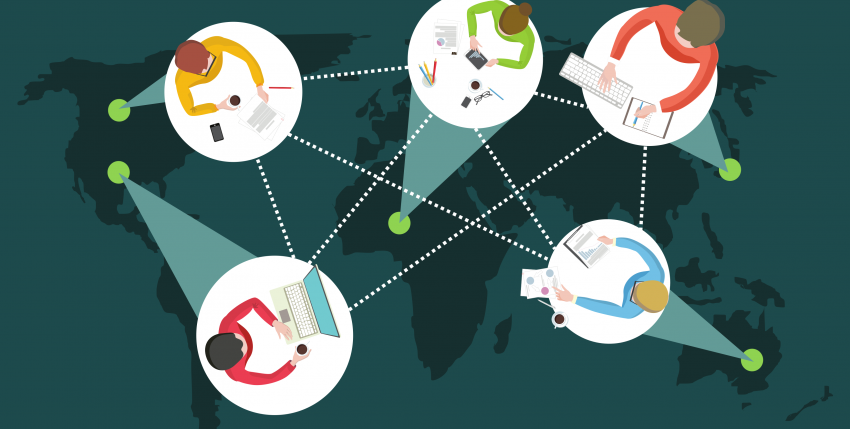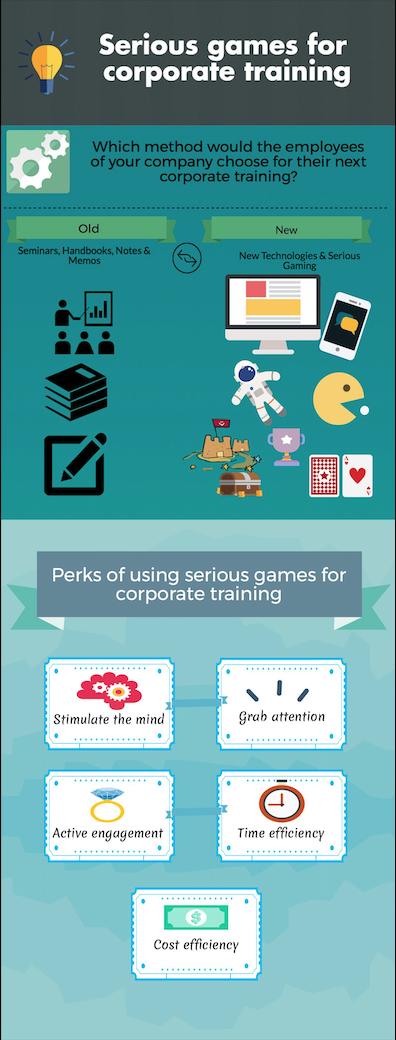
Remote Working and Distance Learning: Is it now the time for Serious Games to be the catalyst of a digital training revolution?
By Efi Papachristou,
Growth and Innovation Lead, Pegneon
The unprecedented health crisis, urges both employees and employers to reinvent themselves. Monitoring performance, upskilling and reskilling human resources, jobs enrichment and increased productivity, are just a few of the areas that called for immediate action.
Distance learning solutions enable the advancement of skills and progress of employees during the Covid-19 crisis. From collaboration platforms that support live video communications to massive open online course platforms (MOOCs) the list of educational applications and resources becomes broader day after day.
What is interesting is that during the Covid-19 crisis, the potential of game based learning has strengthened and a new paradigm for tomorrow emerged. The pandemic becomes the driving force of digital transformation for businesses, and now is the right time for companies and large organizations to transform their curricula into distinct remote lesson plans.
 Amidst this technologically flourishing digital learning revolution, serious games are the most innovative educational tools for corporate training and development. The key difference from traditional training tools and methods is that serious games feature a distinct fun element that make them entertaining yet didactic, but also they feature a richly vivid and interactive digital environment.
Amidst this technologically flourishing digital learning revolution, serious games are the most innovative educational tools for corporate training and development. The key difference from traditional training tools and methods is that serious games feature a distinct fun element that make them entertaining yet didactic, but also they feature a richly vivid and interactive digital environment.
Putting emphasis on the importance and the positive impact of working remotely (saving money, saving time from commuting to work, spent more time with our family, etc), we often neglect that this type of employment may also affect negatively the work – life balance of employees. Increased stress levels, fatigue, insomnia, feelings of disconnection and need for communication and interaction with colleagues, are symptoms that usually work from home employees usually experience.
The benefits of distance learning via serious games are on the flipside of the same coin. When we play games, we become more creative, empathetic and open to assimilate knowledge and adopt new patterns of behavior. Games can release stress and cultivate a fun, yet inspiring, educational experience. Technological developments and digital literacy of modern workforces also multiply their potential. Freedom of choice, flexible training hours, action based training methodology, rewards, participation, intriguing storylines, immediate feedback and evaluation on the performance are only a few of the perks that address the training needs of employees during the digital transformation journey. The interactive nature of serious games make them ultra-engaging and far more fascinating from video tutorials and multiple choice tests in a way that they can serve a wide variety of learning purposes (including soft and hard skills training).
The transition to digital learning experience could enable remote workers become the digital transformers of the future, but it also proves to be a cost and time sensitive investment for companies. The efficient and innovative, perspective of serious games makes them ideal educational tools for advancing the skills and evaluating the performance of remote workers. Not to mention that training via a serious game is undeniably the most fun and engaging method that forges strong team bonds and lifts the spirits of everyone involved.
